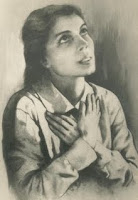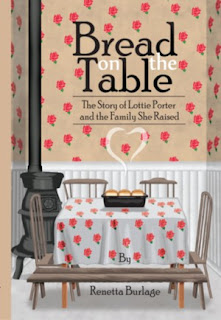 Men's group may be the butt of jokes, at least among some women in the parish, and I have made light fun of it in other posts, including this one. There is a certain amount of oxygen wasted nearly every week arguing issues that are fundamentally unarguable; there is some ruffling of feathers, some strutting and posturing as among fighting cocks.
Men's group may be the butt of jokes, at least among some women in the parish, and I have made light fun of it in other posts, including this one. There is a certain amount of oxygen wasted nearly every week arguing issues that are fundamentally unarguable; there is some ruffling of feathers, some strutting and posturing as among fighting cocks.But men's group also has a way of bringing me up against myself in a way that nothing else in my church week does, not even confession. And for that, as well as for the pure fellowship, I return as often as I can.
This is partly because Ferde is the founder and the sitting president of men's group—although next week some of us will put our names into a hat to replace Ferde, as well as Jonathan, our secretary. They have served long (and well) enough. It is time for a couple of other guys to preside, make the coffee (the president's chore), and organize the agenda (the secretary's).
Being at any table where Ferde presides is like sitting in the presence of an Old Testament judge. Ferde brooks no nonsense, and the meeting moves along purposefully under his gaze. It starts on time. It ends on time. Add to this the fact that Ferde is my dear friend but also in some ways my conscience, and when I slip up, as I have in a certain recent post (don't ask), Ferde lets me know it in uncertain terms. I am just unsure enough of my standing as a recent convert, also just proud enough of my standing as a recent convert with a blog, that I alternately quail and bristle when Ferde glares. Please don't tell him I said so.
But there's much more to men's group than Ferde. In some ways, it's like Snow White and the Seven Dwarfs, without Snow White (Ferde does not qualify, just look at that picture again). Grumpy, Doc, Dopey, Bashful, Sneezy, Happy, and Sleepy are all very much in evidence. This week, having been up since 3 a.m., I was Sleepy, but I can be any of the seven on any given Saturday.
A better analogy, however, is the Disciples at the Sermon on the Mount: poor, mournful, meek, hungry, thirsty. This is us: a group of utterly ordinary men, in ordinary clothes (except for me this Saturday), struggling with the basic human efforts of listening, sharing, and accepting each other's foibles—all the while seeking the Kingdom of Heaven.
This week the presenter was Bob, a man I have grown increasingly fond of, largely because we attend School of Community together on Friday evenings (the meeting of Communion and Liberation in our parish). We also see each other frequently at daily mass. Bob's topic was grandiose, The Nature of Human Evil, but his presentation was anything but. It was humble (in the finest sense of the word), it was grippingly personal, and it was interrupted by an unforgettable moment of emotion that charged the church basement where we meet with an undeniable force. It was powerful theater, completely unpremeditated, and you could just feel the entire table around which we sat grow smaller as each man's attention focused in on Bob and what he was expressing eloquently.
I pride myself on my presentations at men's group, with pride being the operative term. I have spoken on St. Thomas More, St. Joan of Arc, the Carthusians, Dorothy Day, the Turin Shroud, Pope Benedict, and this blog. My presentations are polished, like my shoes this morning. They are crisp, like the crease in my trousers.
But every one of them has fallen short of the humanity we all experienced this morning. Bob is a man seemingly without pretensions, who once studied for the priesthood but chose the vocation of family instead. In whose presence this morning I felt briefly the glow of goodness and the grace of my own fleeting humility.
I'll be back next week, though I'm not sure yet whether to put my name in the hat. It is a big responsibility, filling Ferde's shoes, and I am not being ironic.



















